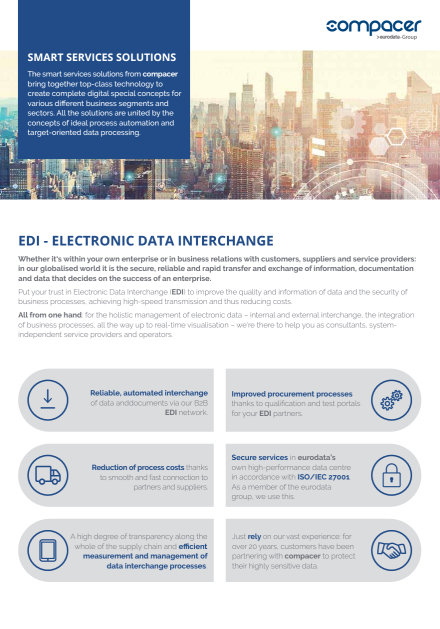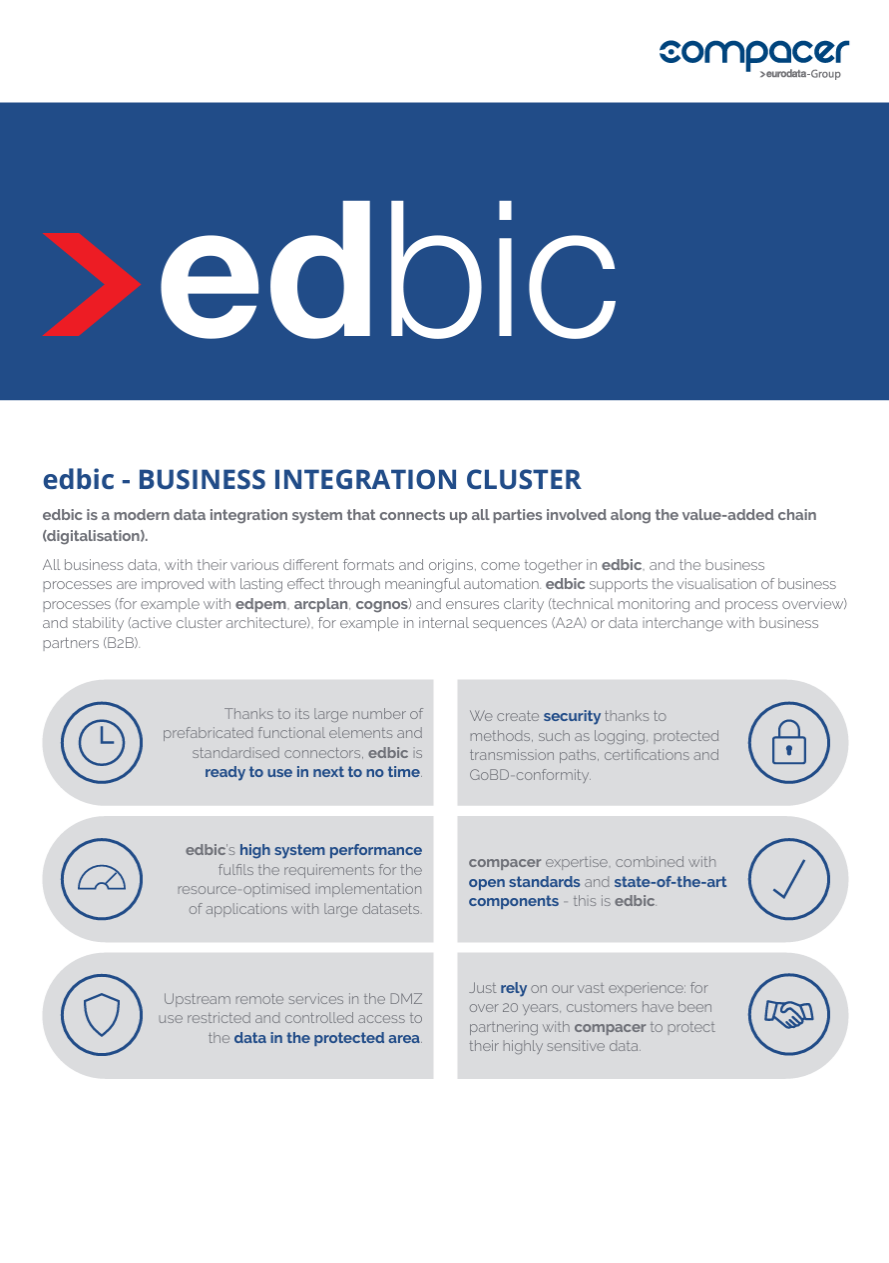The challenge
Our customer was in a very difficult situation: the existing data integration software was outdated, extensions from the provider were no longer possible and support for the software had also been discontinued. As a result, they were looking for a successor that would meet the criteria for a modern data and integration platform, e.g. through web services, and enable a high data throughput. The decisive factor for the customer was full integration into the IBM/AS400/DB2/MQ system environment while adhering to the specified budget and schedule and the modernization and development of a data integration platform for EDI services as a group application with separate systems for development and testing.
The solution
The decisive arguments for choosing compacer were, on the one hand, the price and also the time savings that compacer had estimated for the migration project with its model-based and automated project approach. Even the customer's internal service provider would not have been able to implement this in this time frame or with the budget that had been included. On the other hand, the customer was also impressed by the diverse possibilities and flexibility of the compacer data and integration platform edbic during an on-site reference appointment. The migration not only involved the automated porting of around 1,500 mappings and the associated EDI message connections, but also 2,400 partner connections, with the premise that this should have no impact on the connected business partners.
Result
Thanks to our model-based project method and close-meshed project controlling, we were easily able to keep to the project timeframe and the specified budget in this migration project. This also made it possible for us to provide the customer with flexible support wherever possible, absorb work peaks on the customer side and gradually take on additional tasks for the customer. We saw this as a great vote of confidence. But it was not only the compacer project method and the successful cooperation that had a positive influence on the speed of the project. Thanks to our established, model-based approach and the automation by means of tool-supported porting of message structures and processes, conversion times and manual sources of error were drastically reduced. This has reduced the migration and testing effort by 80% to 90% compared to the usual manual approach.
By using the compacer data integration platform edbic, our customer can now set up processes more easily in day-to-day operations, reuse modules and monitor processes and their interaction more effectively. This significantly increases IT efficiency.
The system load is currently 2 million data records per working day (8 hours) and a peak load of 1 million/hour, whereby the system is designed for up to 7 million data records per day. The customer was impressed not only by the flexibility and adaptability of the platform, but above all by its speed.
The next step is to implement the diverse possibilities of web services with edbic.

/Logistikkonzern/4394181.png)


